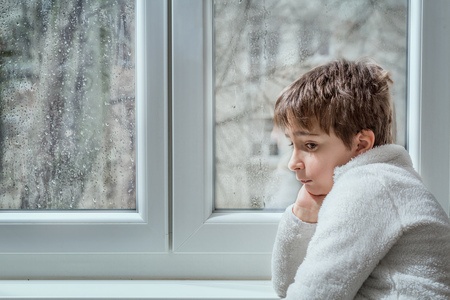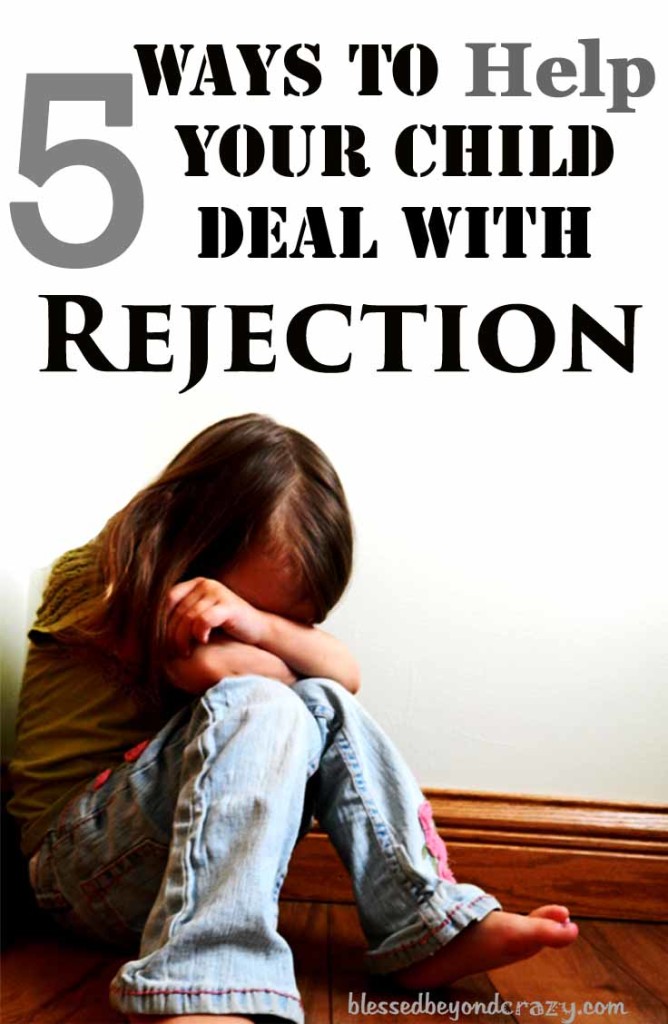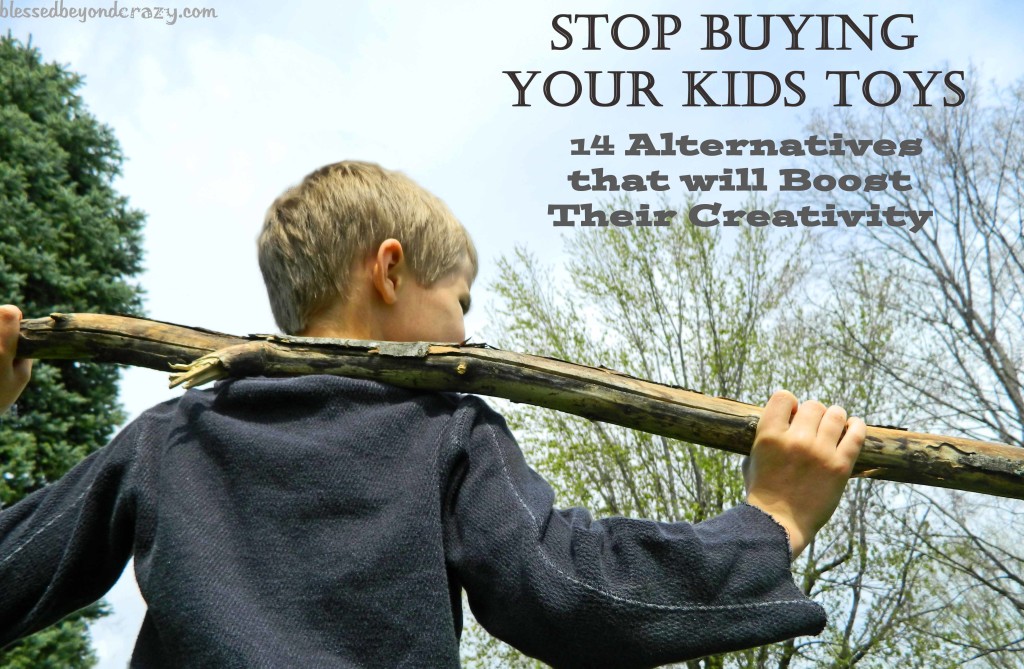
No one likes to be rejected. It is uncomfortable, and painful, and can leave lasting emotional scars. Rejection is hard enough to deal with as an adult, but it can be even harder for children. What can we do to help our precious children deal with all of the emotions that come with feeling rejected? In today’s post, we discuss 5 Ways to Help Your Child Deal with Rejection.
Disclaimer: I am not a doctor or mental health professional. I am simply a Mom/Grandmother with life experience and the opinions listed below are strictly my own.
To help support our blogging activities, our site contains affiliate links. If you make a purchase from a link on our site, we may receive a small percentage of that sale, at no extra cost to you. Blessed Beyond Crazy is a participant in the Amazon Services LLC Associates Program, an affiliate advertising program designed to provide a means for sites to earn advertising fees by advertising and linking to amazon.com.

1. HELP A CHILD UNDERSTAND THEIR SELF-WORTH
We all know that every single person on the planet is a uniquely created individual. Even identical twins have their very own set of fingerprints. No two of us are exactly alike. That fact alone tells us that we all have great value. But let’s take it a step further…
If you own an item that is worth $100 million dollars, how you would treat it? Would you place the item in a safe, or even let it out of your sight? You probably would look at it often to make sure it was okay, right? Maybe you would place guards around it? Would you treasure it and place great value on it? Or, perhaps you toss it under the bed or in the back of your closet and never look at it again?
I’m guessing that you would take great care of this special $100 million-dollar item.
Guess what? We, my dear friends, are not worth $100 million….. we are PRICELESS! So why do we let others determine who we are and what we are worth? God tells us in scripture that we are so precious to Him that He knew us BEFORE we were ever born, (Jeremiah 1:5).
He knows the very number of hairs on our head, (Matthew 6:26) and collects all of our tears, (Psalms 56:8). God also sent his Son to this earth for us, (John 3:16)… just to mention a few scriptures.
WOW! It doesn’t get any better than that! If the Creator of the universe feels that way about us then who are we to argue the point?
When a person, (be it an adult or a child), knows that they are important, valuable, and priceless, it will be easier for them to deal with the feelings of “rejection” from others. They will not NEED approval from others because they KNOW that they have the stamp of approval from the One who created them, along with their closest family members and friends.

On a regular basis spend quality time with your children; taking every opportunity to tell them how unique, valuable, special and priceless they are and that there is no one else in the whole world exactly like them. They are important, even if someone else doesn’t see it.
2. NOT EVERYONE WILL LIKE YOU… AND THAT’S OK
Do you know someone that will do things just to try to get everyone to like them? They regularly take on responsibilities and commitments that they don’t want to do, simply to appease others and try to win their approval.
There is nothing wrong with helping others; that is a very healthy thing to do. However, we get ourselves into trouble when we do things for all of the wrong reasons.
It is very unrealistic to think that everyone will like you. No matter how ‘likable” you are, there will always be someone out there in your world that will not care for you. Guess what? That’s OK. They don’t need to.

The sooner we teach our little ones that not everyone will be their friend, the sooner they will be able to deal with rejection. Simply knowing that it is normal, and perfectly fine, not to be liked by everyone will help your child develop their self-esteem and self-worth. We should encourage our children to be friendly and nice to everyone, however, they will not like everyone themselves and that is fine too.
Teaching our children that rejection says nothing about them as a person is invaluable because they need to avoid labeling themselves based on superficial interactions. We should encourage our children not to give someone, (who probably doesn’t really even know them that well), influence over their self-image.
This leads me to the next point…
3. PEOPLE COME AND PEOPLE GO – DO NOT CHASE THEM
Through the years, whenever I was going through a tough time in my life, my Dad would tell me, “This too shall pass.” He was 100% right! Nothing stays the same. I know that when we are going through trials and heartaches it often feels like it’s the end of the world and that it will never get better. But that simply isn’t true. The circumstances will not stay the same forever.
Sometimes it seems that certain people have it easy. They never seem to struggle with anything and can simply glide through this world without a care. But the reality is, if a person lives long enough, they will eventually go through something painful. Whether it be sickness, the death of a family member or pet, financial woes, substance abuse, and more… something painful will occur. It’s just a matter of time.
In my opinion, we need to teach this to our children and that is why I’ve included this post 5 Ways to Help Your Child Deal with Rejection. They need to understand that people come and go in our lives and if one friend ‘rejects’ them they will eventually develop a friendship with someone else.
We also need to teach our children not to chase people when they walk away. If they walk away… let them walk. If you have to chase someone and beg them to be in your life, then that relationship isn’t healthy and you don’t want it anyway. This is a valuable lesson for children to learn early on and will be useful, especially during the dating years.
4. SURROUND YOUR CHILD WITH PEOPLE THAT GENUINELY CARE ABOUT THEM
There is something to be said about being on a team, especially a good one. Team members can cheer you on, give advice, teach you skills and sportsmanship, help you to see your strengths and weaknesses, pick you up if you fall and even carry you across the finish line if needed.

Children deal with rejection much better if they know that they are surrounded by people that genuinely love and care about them. It is always harder to go through tough times if you feel that you have no one to help you. Therefore, it is important to place a team of caring individuals around our children to help support and encourage them.
Just knowing that there is someone they can turn to will help a child deal with their pain. As parents, we should be our children’s biggest fans and cheering section!
5. THINGS ARE NOT ALWAYS AS THEY SEEM
Sometimes a situation appears one way but in reality, it is entirely different. For example, one morning, while you are getting ready to walk out of the door on the way to work, you suddenly spill coffee on your blouse or shirt. You run into your closet and change into a different outfit and now you are going to be late for work. How frustrating!
However…. later that day on the news you hear that there was a horrific traffic accident that involved a dozen vehicles and it was the direct route you take every day to work. Since you ran late, you probably missed being involved in the accident. Therefore, the very thing that was frustrating in the morning ended up being a great blessing in disguise.
So it can be with people. Sometimes, people are not what they seem – good or bad. Rather, it’s just the opposite! They may be experiencing tough times themselves and they are lashing out at others in an unhealthy way. Perhaps another child is acting badly towards your child because they just found out their Dad was just diagnosed with cancer. The child that is behaving badly isn’t probably going to express that verbally but will express it through their actions.
We should teach our children that rejection is not their fault. They should try not to personalize and take the blame for someone else’s behavior. There are many reasons why someone can be disinterested or appear to be rejecting them and very few, (if any), of them relate to our child at all. Therefore the behavior of another person is not an indicator of our child’s character or self-worth.
Help your child to understand that there are many factors that may have contributed to the other person’s disinterest and this is not under our child’s control or responsibility. Most importantly – we must teach our children that “rejection” from someone says NOTHING about them as a person and that the individual is responsible for the “rejecting” behavior, not our child.
Conclusion:
Experiences of rejection are not easy. Helping our children think about, and internalize, the experience can help alleviate negative personal feelings. Whether one or several people have demonstrated rejecting behaviors towards our children, each time, place, and person are distinctive.
What is true for one is not true for all. The next person could be different. Help your child to not overgeneralize and try not to personalize or take the blame for other actions. When children do the best they can with what they have, worrying about feelings of rejection is simply a waste of energy.
Finally, when children accept themselves and others for who they are, it’s easier for them to deal with feelings of rejection.

Would you add any other tips to these 5 Ways to Help Your Child Deal With Rejection?
Here’s to having a wonderful and healthy life! 🙂
Linda
More great ideas:












Amanda says
I was just talking to my niece about feeling like an outsider and coping. She gets really sad if she feels like she’s been rejected.
What we found out was that she didn’t realize how amazing she was. We’ve had several discussions about self-belief and what it means to be true to your heart, and why you don’t have to try to be amazing because you already are.
I got my ideas from a video about confidence with teens at: https://preparemykid.com
Blessed Beyond Crazy says
Hi Amanda,
Thanks for sharing this story about your niece with us. I’m so glad that you have been able to speak words of affirmation into her life and that she seems to be listening and responding. Oftentimes, children don’t realize their own self-worth because they believe the hurtful things other kids might say to them. Keep up the good work and glad that you and your niece have a close relationship. Please give her a big hug for me! 🙂
Linda
Amrita says
Hi there,
I am goong to post txt conversation i am having with 21 yr old son. I love him to the moon & back.he foes not see it that way. Our younger son was diagnosed with autism when older one was just 4 yrs old. Autism consumed me & my husband beyond discription. He is pribably right in feeling that way.
Ever since i found out how he feels , i have tried everything i can to make him feel complete , loved & cared for. But he defaults to same emotions & ferlings.
Its tearing my heart apart on how to else to help him otjer than going back in time & start all over again.
Any & all suggestions are welcomed.
Blessed Beyond Crazy says
Hi Amrita,
I’m so sorry to hear that your son is having a hard time. I wish that I could snap my fingers and everything would be okay for him, as well as for your family. Unfortunately, life has a way of handing us problems that are out of our control. Having a good support system that includes family and close friends is always helpful, and keeping an open line of communication with your son is of the utmost importance. From your message, it seems that you may need an outside person to help you guys work through some issues. Someone who is far removed from the situation may be able to see things that neither you or your son can. Ultimately, your 21-year-old son is an adult and must be willing to be open, honest and seek help in the situation too. Relationships can be difficult, but healing is possible if everyone is willing to work through the issues. Linda
Nancy picharddo says
Hello everyone I just recently had a problem go on here with my nine-year-old daughter she’s had this best friend since Kinder and now she just started 4th grade well this best friend of hers dumped her and just completely dumped her and found someone else my daughter is devastated she won’t cry but she does things at the tell me that something’s wrong I tell her that but sometimes no friends are not always going to be your friends forever and that’s just the way life really as you know I tell her she’ll find herself some nicer friends later on down the road I’m very upset and I don’t want her hanging around with that little girl anymore sometimes she’ll speak to her I guess when she feels like it and my daughter gets her hopes up high the things will be the same again and they’re not she keeps rejecting my daughter I don’t know what to do I tell her that she’s beautiful that she’s Worthy but I don’t know I’m just kind of likes losing sleep over this I love my daughter to death so I’m I think I’m going to talk to the little girl’s mom to let her know that my daughter won’t be hanging around with her daughter or talking to her again what are you guys think I need some feedback please
Blessed Beyond Crazy says
Hi Nancy,
I’m so sorry to hear that your daughter is going through this with her friend. It can be very confusing and hurtful. If you do end up having a conversation with the little girl’s mother, perhaps you can ask if there is an issue that has caused a division between the two girls. On the other hand, sometimes it’s best to be on the sidelines for support but allow the girls to work through difficult times themselves. As you mentioned, we meet new friends as life unfolds. I would encourage your daughter to continue to be kind to her friend but to also set boundaries and not chase her. Let her know that you love her and are always there to listen.
Thanks for stopping by and leaving a message and I hope this situation improves quickly for your daughter.
Linda
Karina Chavez says
I’m sitting here thinking of my 6 yr old boy, he has a 18 month old brother and a 2 month old baby brother and He tells me I don’t pay as much attention to him as I used to. I know it’s true obviously having to split my time by 3. Sometimes I don’t know what to do. I feel bad. But I feel like this will help me have a talk with him to feel awesome and unique.
Blessed Beyond Crazy says
Hi Karina,
Something you might consider doing is having a regular date night with him. I did this with my children when they were little. Sometimes we went to a movie and dinner, or sometimes it was a lunch and a little shopping therapy. They loved having a special date night with Mom and it was a great chance to give each of my three kids my undivided attention. Even if you spend just an hour or two alone with your 6-year-old, it will really make an impact on him and he’ll look forward to these special moments with you. Try to focus on something that he’s interested in or try doing something new and turn it into a great adventure for both of you. I think this may help him feel better.
Thanks for stopping by and please let me know how it goes.
Linda
Lorena says
My daughter was recently rejected by her first crush I could said, along with he’s circle of friends…. I know she is in pain so do I! This is hard… she is only 11 and now she’s being called the crazy
Blessed Beyond Crazy says
Hi Lorena,
I’m so sorry to hear that your daughter is going through this. Feeling rejected is never a good feeling. Not only is it hard for a child, but the parent’s as well.
Hang in there and please continue to encourage your daughter to hold her head high and realize that she doesn’t need this boy’s approval (or his friends). As my dad always says, “Nothing stays the same.”
It seems that people come and go throughout our lives and sometimes we are in a relationship for only a season.
Thanks for reaching out to us and I hope things get better soon!
Linda
Mysha mom says
Really glad i found this article,really help me a lot to encourage my lil girl to feel confident to herself this is what my daughter going through right now, it really breaks my heart when my daughter comes home crying after playdate with her friend and said that her friend dont want to play with her because of silly reason, i hope i could help my daughter get through this. Thank you for writing this. Hope my english are good enough.
Blessed Beyond Crazy says
Hi Mysha,
Oh, I am so sorry to hear that your precious daughter is experiencing feeling sad because of her friends not including her at playtime. That breaks my heart to hear this. I hope that your daughter can comprehend just how beautiful, valuable and precious she truly is, no matter who does or does not like her. Please encourage her to hold her head up high and just be herself. When a person (young or old) is comfortable in their own skin and likes who they are, it’s easier to overlook and/or forgive unpleasant behavior of others. Please give your sweet daughter a hug for me and try to surround her with people that love her and can encourage her right along with you.
Thanks for stopping by and leaving a message.
Linda – P.S. Your English is great!
Tricia says
The little girl inside of me cried as I read this article. These suggestions would have helped me so much. I am glad that my 7 year old daughter can grow up confident and not have a root of rejection. Thank you for the suggestions.
Blessed Beyond Crazy says
Hi Tricia,
Oh, my heart goes out to you. Honestly, I shed a few tears while writing this post. My hope has always been that this post will help children grow up with a sense of self-worth and confidence, surrounded by adults that love and support them. Too many children feel rejected and bullied. I’m glad to hear your daughter is doing well.
Thanks for stopping by and leaving us a note.
Take care,
Linda
Shannon says
These 5 points were so awesome and I love how you pointed every comment back to the Word of God. We will certainly be praying over and applying the tips that have been suggested to pour into our child.
Thank you!
Blessed Beyond Crazy says
Hi Shannon,
Thank you for your kind comments and for leaving us a message. We are happy to learn that this post seems to be helping many others deal with rejection and Anna and I both know that praying for our children is of the utmost importance.
God Bless!
Linda
Tampa Mommy says
I love this article! Thank you so very much!
Blessed Beyond Crazy says
Thank you! We are glad you enjoyed this post.
Take care,
Linda
jazzy says
I do not agree with many of your comments on kids being rejected. I worked with elementary children for many,many years. Jazzy
Blessed Beyond Crazy says
Hey Jazzy,
That’s perfectly fine if you don’t agree. As I stated at the beginning of the post, I am no expert and simply shared my own thoughts and personal life experience. You certainly have the right to your own views.
Have a great day!
Linda
Nicole Jaworski says
Could you elaborate?
Amy says
Thank you so much for this. My 7 year old daughter is stuck in a friendship triangle where a girl is excluding her and not letting her play with her “best friend”. She’s so young and I know things like this will happen for the rest of her life. It’s so hard though to see your kids crying and hurt. These words are awesome and give me “hope”. I know “This too shall pass”. These are great things to share with my daughter to help her through it and prepare her for the inevitable rejection ahead of her. God bless you.
Blessed Beyond Crazy says
Hi Amy,
Rejection is hard. It’s hard for anyone at any age, but especially for children. I hope that you can glean some things from this post that can help your daughter. As a parent, we want the very best for our children and it is very hard to watch them hurt. Hopefully your daughter is old enough to realize that she can have lots of friends, and if one or two exclude her, she has other friends to play with. Hang in there. You are right, nothing stays the same and this too shall pass. It’s certainly hard when a person is right in the middle of the drama though.
Sending great big hugs to you and your daughter!
Thanks so much for stopping by and leaving us a note.
Linda
Tricia says
My daughter is in a triangle too. The kids are not leaving her out at school. The moms have started excluding us from play dates. I have a root of rejection so this hurts me deeply.
Megan says
There’s a really amazing book by Max Lucado called “you are special”. It’s such an amazing book I bought a copy for myself and I don’t have any kids yet. I normally carry it around to share with people when they’re dealing with rejection or feelings of low self-worth. It’s an amazing illustration of just how silly it is to let what other people think about us define us or matter to us. The story points the way to our maker, who, when we spend time with him, can help us realize our true value, and realize how unimportant what other people think it is. Check it out.
Blessed Beyond Crazy says
Hi Megan,
I love Max Lucado and have read several of his books through the years. I haven’t read the book you mentioned yet but will certainly check it out. Thanks so much for stopping in and for mentioning this book to me. It sounds like it’s very inspirational and encouraging.
Thanks again,
Linda
Tricia says
Thank you, I’m going to order that book now.